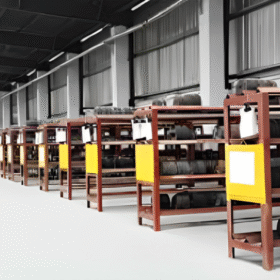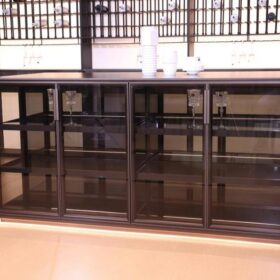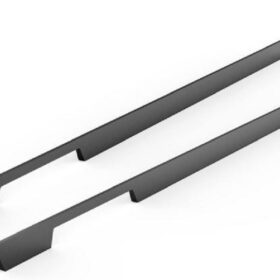The Environmental Impact of Kitchen Furniture Handles
The Environmental Impact of Kitchen Furniture Handles: An Overview
Kitchen furniture handles, seemingly insignificant components, can have a surprising environmental impact. From their raw materials to their manufacturing processes and ultimate disposal, these seemingly innocuous fittings play a role in various environmental concerns. This article explores the environmental impact of kitchen furniture handles, highlighting key areas where they can contribute to environmental degradation and discussing sustainable alternatives to minimize their ecological footprint.
Raw Materials
Wood
Wooden handles are a common choice due to their natural aesthetic appeal. However, logging practices for harvesting timber can contribute to deforestation, a major environmental issue. Unsustainable forestry practices lead to biodiversity loss, soil erosion, and disruption of carbon cycles. Choosing handles made from sustainably harvested wood, such as FSC-certified wood, can help mitigate these impacts.
Metal
Metal handles, primarily made from stainless steel or aluminum, are durable and corrosion-resistant. However, mining and refining these metals are resource-intensive processes that release greenhouse gases and generate toxic waste. Additionally, mining can cause land degradation and disrupt local ecosystems. Opting for recycled metal handles reduces the demand for new mining and lowers the environmental footprint.
Manufacturing Processes
Handle manufacturing involves various processes that can have environmental consequences. For instance, electroplating, a common technique for giving handles a metallic finish, can release harmful chemicals into the environment. These chemicals contribute to air and water pollution, posing risks to human health and wildlife. Choosing handles finished through sustainable methods, such as powder coating or anodizing, minimizes chemical emissions.
Waste Generation
Disposing of used kitchen handles also poses environmental challenges. When handles are not properly recycled, they end up in landfills, where they can take centuries to decompose. Incinerating handles releases harmful pollutants into the atmosphere. Recycling programs specifically designed for furniture handles can significantly reduce their environmental impact.
Sustainable Alternatives
Recognizing the environmental concerns associated with kitchen furniture handles, manufacturers and consumers alike are exploring sustainable alternatives. These include:
Eco-Friendly Materials
Handles made from recycled materials, such as reclaimed wood or recycled metal, minimize the use of virgin resources and reduce waste. Biodegradable materials, such as bamboo or cork, provide an eco-friendly option that decomposes naturally at the end of their lifespan.
Sustainable Finishes
Powder coating and anodizing are environmentally friendly alternatives to electroplating, avoiding the release of harmful chemicals into the environment. These finishes are also durable and resistant to corrosion, ensuring longevity.
Zero-Waste Production
Manufacturers can implement zero-waste production processes by using automated cutting machines that minimize material waste and reusing or recycling scrap materials. This approach conserves resources and reduces the overall environmental footprint of handle production.
End-of-Life Management
Recycling programs specifically designed for kitchen furniture handles can prevent them from entering landfills or being incinerated. These programs collect and process used handles, extracting valuable materials for reuse.
In conclusion, kitchen furniture handles, while often overlooked, have a considerable environmental impact. From raw material extraction to manufacturing and disposal, they contribute to various environmental concerns, including deforestation, greenhouse gas emissions, and waste generation. By choosing sustainable materials, opting for environmentally friendly finishes, and supporting zero-waste production and end-of-life management practices, manufacturers and consumers can significantly reduce the environmental footprint of these seemingly minor components and contribute to a more sustainable future.
-
2024-11-29Top Trends in Modern Kitchen Cabinet Pulls for 2024
-
2024-11-28The Ultimate Guide to Modern Kitchen Cabinet Pulls- Materials, Styles, and Tips
-
2024-11-27Elevate Your Kitchen Design with These Must-Have Modern Cabinet Pulls
-
2024-11-26Sleek and Stylish- The Best Modern Kitchen Cabinet Pulls for a Contemporary Look










